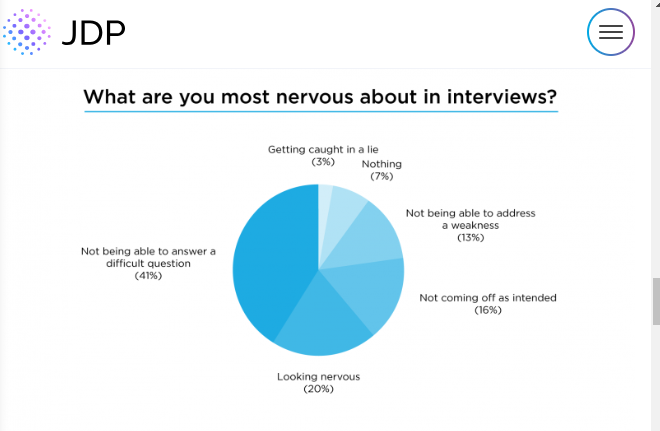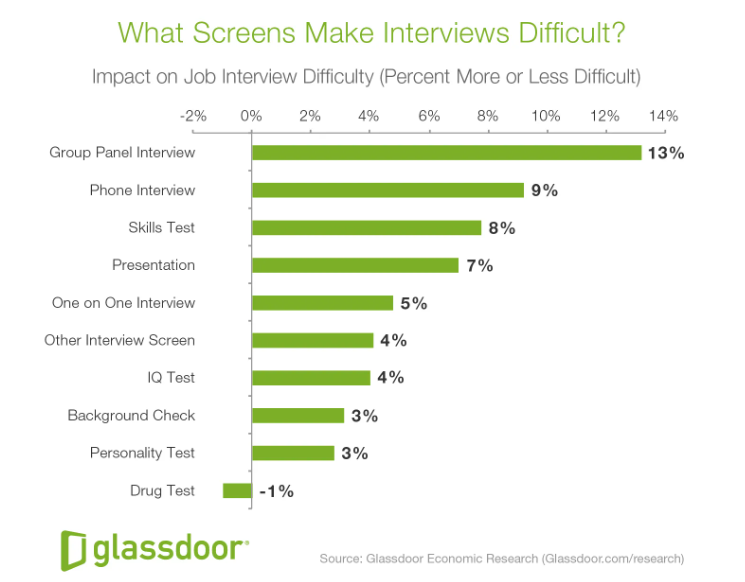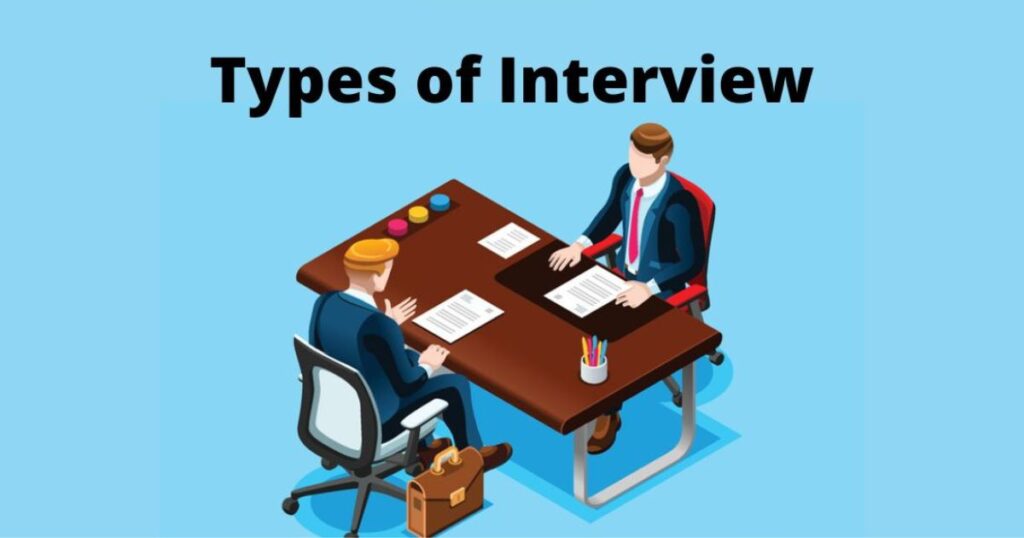Many candidates often wonder how long they should prepare for an interview. The answer is not one-size-fits-all, as different interviews require different levels of preparation.
Preparing for an interview is a crucial step in the job search process that can significantly influence your chances of success. While the exact amount of preparation time can vary depending on several factors, including the type of interview and the role you are applying for, dedicating adequate time to preparation is essential.
Understanding the different types of interviews and their specific preparation needs, along with the general guidelines for preparation time, will help you develop a comprehensive and effective preparation plan. By considering factors such as job level, company size, and the type of interview, you can better gauge how much time to dedicate to your preparation.
In this article, we’ll discuss key components to include in your preparation plan, how to use feedback from mock interviews, and ways to avoid over-preparation and burnout. With the right approach, you can confidently enter your interview well-prepared and ready to impress.
See Also:
The Significance of Preparation Time

Source: JDP.com
According the survey taken by JDP, job interview is one of the ranking activity that makes an individual nervous with about 29%. This why preparation time for an interview is crucial because it allows you to research the company, understand the role, and practice your responses to potential questions. Adequate preparation can significantly boost your confidence, reduce anxiety, and improve your performance during the interview.
It also demonstrates to the interviewer that you are serious about the opportunity and have invested time to understand their business and how you can contribute. Preparation time varies depending on the interview type, the complexity of the role, and your familiarity with the industry.
For instance, preparing for a technical interview may require more time than a general behavioural interview due to the need to review specific skills and knowledge. By allocating sufficient time for preparation, you can ensure that you present yourself in the best possible light and increase your chances of securing the job.
General Guidelines for Preparation Time
General guidelines for preparation time can help you structure your efforts and ensure you cover all essential aspects. Preparing without guidelines will affect all your efforts while going for an interview. Here’s a list of guidelines that will help you prepare:
- Research the Company: Research the company’s mission, values, culture, and recent news. This shows your genuine interest in the organization.
- Understand the Role: Carefully review the job description and identify the key skills and experiences required. Think about how your background aligns with these requirements.
- Prepare Responses: Practice common interview and behavioural questions using the STAR method (Situation, Task, Action, Result).
- Review Your Resume: Be ready to discuss any part of your resume in detail, including your achievements, experiences, and skills.
- Practice: Conduct mock interviews with friends or mentors to get feedback on your responses and improve your performance.
These guidelines ensure you cover the critical areas and present yourself as a well-prepared and serious candidate.
Typical Preparation Timelines for Various Interview Stages
Preparing for an interview can vary depending on the stage of the interview process. There are several preparations you have to make before going for an interview. Here is a list of things to do while preparing for various interview stages:
- Initial Phone Screening: Spend 2-4 hours researching the company, reviewing the job description, and practising your responses.
- First Round Interviews: Allocate 5-10 hours for deeper company research, in-depth understanding of the role, and preparing for more comprehensive questions.
- Second Round or Technical Interviews: Dedicate 10-15 hours to reviewing specific skills, practising technical problems, and understanding the company’s technical environment.
- Final Interviews: Spend 10-20 hours on in-depth company research, preparing for behavioural questions, and thinking about your long-term fit within the company.
These timelines provide a general framework, but the actual time needed may vary based on individual circumstances and the specific requirements of the role.
Factors Influencing Preparation Duration

The duration required to prepare for a job application can vary widely depending on several factors and it is important to prepare ahead to face challenging interviews. Understanding these factors can help you allocate sufficient time to ensure a thorough and polished application.
- Level of Responsibility: More senior positions or roles with a broader scope of responsibilities typically require a longer preparation time. These roles often have more complex job descriptions and higher expectations for experience and skills.
- Technical Requirements: Jobs requiring specific technical skills or qualifications may require additional time to gather and present evidence of your competencies. You may need to review past projects, obtain certifications, or refresh your knowledge.
- Company Research: Thoroughly researching the company is crucial. Companies with extensive histories, multiple business units, or those undergoing significant changes will require more time to understand their operations, culture, and values.
- Industry Knowledge: Understanding the industry in which the company operates can also impact preparation time. If the industry is unfamiliar, additional time will be needed to learn about its trends, challenges, and opportunities.
- Types of Interviews: Different interview formats (phone, video, in-person, technical) require different preparation strategies. Practising these various formats can add to the overall preparation time.
This thorough preparation can significantly increase your chances of securing an interview and ultimately landing the job.
See Also:
Creating a Preparation Plan
Creating a structured preparation plan is essential for effective interview preparation. Firstly
- Set Clear Goals: Define what you want to achieve with your preparation, such as understanding the company, practising specific skills, or improving your interview techniques.
- Create a Timeline: Break down your preparation into manageable tasks and set deadlines for each. This helps ensure you cover everything without feeling overwhelmed.
- Allocate Time Wisely: Prioritize the most critical areas, such as company research and practice interviews, and then move on to less critical tasks.
- Use Available Resources: Leverage online resources, books, and professional networks to gather information and tips for your preparation.
- Track Your Progress: Keep a log of your preparation activities and monitor your progress to stay on track.
A well-structured plan ensures comprehensive preparation and helps you manage your time effectively.
Key Components to Include in Your Preparation Plan
Preparing for a job application involves more than just updating your CV and writing a supporting statement. It requires a comprehensive preparation plan to ensure you present yourself as the best candidate. Here are the key components to include in your preparation plan:
- Company Research: Start by researching the company thoroughly. Understand its mission, values, culture, and recent developments. This knowledge will help you tailor your supporting statement to reflect the company’s ethos and demonstrate your genuine interest in becoming part of their team. Visit the company’s website, read news articles, and check their social media profiles.
- Role Analysis: Gain a deep understanding of the role you are applying for. Carefully read the job description to identify the key responsibilities, required skills, and qualifications. This will help you highlight relevant experiences and skills in your supporting statement. Additionally, consider how this role fits within the company and how it contributes to its overall objectives.
- Self-Assessment: Conduct a self-assessment to identify your strengths, weaknesses, and relevant experiences. Match your skills and experiences with the job requirements. This will help you craft a supporting statement demonstrating why you are the best fit for the position. Be honest with yourself and focus on showcasing your most relevant achievements.
- Develop Your STAR Responses: Use the STAR (Situation, Task, Action, Result) technique to prepare examples highlighting your competencies. Think of situations where you demonstrated key skills required for the job. Clearly outline the situation, your task, your actions, and the results achieved. This structured approach ensures your examples are clear and impactful.
- Tailor Your Supporting Statement: Write a tailored statement for each job application. Address the specific requirements and responsibilities mentioned in the job description. Highlight your relevant skills and experiences, and explain how they make you the ideal candidate for the role. Avoid using a generic statement for multiple applications; instead, customize it to reflect the unique aspects of each position.
Preparation for Different Types of Interviews

Preparing for an interview requires understanding the format and expectations. Here’s how to prepare for various types of interviews:
Phone Interviews
Phone interviews often serve as an initial screening to determine whether you fit the role well. Preparation for a phone interview involves clear and concise communication. Ensure you have a quiet environment with no distractions. Have your resume, job description, and company research notes in front of you for easy reference.
Practice your responses to common interview questions, focusing on being concise yet informative. Since the interviewer can’t see you, your tone and speech clarity become even more important. Smile during the conversation, as it can positively affect your tone.
Be prepared to discuss your background, interest in the role, and what you know about the company. Have a few questions ready to ask the interviewer, demonstrating your interest in the role and the company. This preparation helps you make a strong impression during the initial screening stage.
Video Interviews
Video interviews are increasingly common with about 60% recruiters using this process which requires a blend of phone and in-person interview preparation. Before you prepare for the interview, ensure your technology, including your camera, microphone, and internet connection, is working properly. Choose a quiet, well-lit location with a professional background.
Dress professionally, as you would, for an in-person interview. Practice maintaining eye contact by looking at the camera, not the screen.
Test your setup with a friend or family member to ensure everything works smoothly. Have your resume and notes nearby, but avoid reading directly from them. Focus on clear communication and body language, as both will be visible to the interviewer.
Be prepared to handle potential technical issues calmly and professionally. These steps allow you to present yourself confidently and professionally in a video interview.
In-Person Interviews
In-person interviews require thorough preparation to make a strong impression. Plan your route and timing to ensure you arrive early. Dress appropriately for the company culture, erring on formality if unsure. Bring multiple copies of your resume, a notepad, and a pen. Greet everyone you meet with a firm handshake and a friendly smile. Pay attention to your body language; maintain good posture, make eye contact, and avoid fidgeting.
Be prepared for a deeper dive into your experiences, skills, and fit for the role. Practice your responses to common and behavioural questions by providing detailed and structured answers. Also, before you prepare for an interview, have a few insightful questions ready to ask the interviewer about the role, team, and company. After the interview, send a thank-you note to express your appreciation and reiterate your interest in the role.
Technical or Skills-Based Interviews
Technical or skills-based interviews focus on assessing your expertise and problem-solving abilities. You must review relevant technical concepts, tools, and methodologies to prepare for an interview. Practice solving problems or coding challenges similar to what you might encounter in the interview.
Use online platforms or study guides to hone your skills. Be prepared to explain your thought process and reasoning as you work through problems. Review any technical projects or experiences listed on your resume, as you may be asked to discuss them in detail. Understand the specific technologies and tools used by the company and be ready to demonstrate your proficiency. Practice technical questions with a friend or mentor to get feedback and improve your performance.
You can confidently showcase your technical skills and problem-solving abilities by focusing on these areas.
Check Out:
How to Use Feedback From Mock Interviews

To prepare for an interview, mock interviews are a valuable tool for improving your performance. Seek feedback from friends, mentors, or career coaches who conduct the mock interviews.
- Focus on both the content of your answers and your delivery.
- Identify areas where you can provide more detailed or structured responses.
- Pay attention to non-verbal cues such as eye contact, body language, and tone of voice.
- Use the feedback to refine your answers and practice until you feel confident.
- Address any weaknesses or gaps in your knowledge highlighted during the mock interview.
- Incorporating feedback from mock interviews into your preparation plan helps you make continuous improvements and increases your chances of success in the interview.
Avoiding Over-Preparation and Burnout
While thorough preparation is essential, avoiding over-preparation and burnout is important. Set realistic and manageable goals for your preparation, breaking down tasks into smaller, achievable steps. Take regular breaks to rest and recharge, ensuring you don’t become overwhelmed. Also, to prepare for an interview, balance your preparation with other activities, such as exercise, hobbies, and socializing, to maintain a healthy work-life balance.
Recognise the signs of burnout, such as fatigue, irritability, and loss of motivation, and adjust your preparation plan accordingly. Practice relaxation techniques, such as deep breathing or meditation, to reduce stress and anxiety. Remember that preparing for every potential question or scenario is impossible, so focus on the most important areas.
By managing your preparation time effectively, you can avoid burnout and present yourself as a well-rounded and resilient candidate.
Read Also:
Conclusion
Preparation is a significant component of interview success, and understanding how much time to allocate can significantly impact your performance. By considering the type of interview, the job level, company size, and your own experience, you can develop a tailored preparation plan that ensures you are well-prepared without becoming overwhelmed.
Different types of interviews, such as phone, video, in-person, and technical interviews, require specific preparation strategies. Incorporating feedback from mock interviews and balancing your preparation efforts with self-care can help you avoid burnout and present yourself confidently.
Remember, thorough preparation demonstrates your commitment and interest in the role, increasing your chances of making a positive impression and securing the job. Following the guidelines and strategies outlined in this article, you can approach your next interview with the confidence and readiness needed to succeed.
FAQs for How Long Should You Prepare For an Interview
How many hours should you spend preparing for a phone interview?
Typically, 2-4 hours of preparation is sufficient for a phone interview. This includes researching the company, reviewing the job description, and practising concise responses to common questions.
What are the key areas to focus on when preparing for a technical interview?
To prepare for an interview, key areas must include reviewing relevant technical skills, practising problem-solving or coding challenges, understanding the company’s technical environment, and being ready to explain your thought process and past technical projects.
How can you effectively use mock interviews in your preparation?
Mock interviews help you practice your responses and receive feedback on content and delivery. Focus on improving areas of weakness, refining your answers, and becoming more comfortable with the interview format to boost confidence.
What are some common mistakes people make during interview preparation?
Common mistakes include under-preparing, over-preparing to the point of burnout, neglecting to research the company, not practising answers to common questions, and failing to prepare questions to ask the interviewer. Avoid these pitfalls by following a balanced and comprehensive preparation plan.

